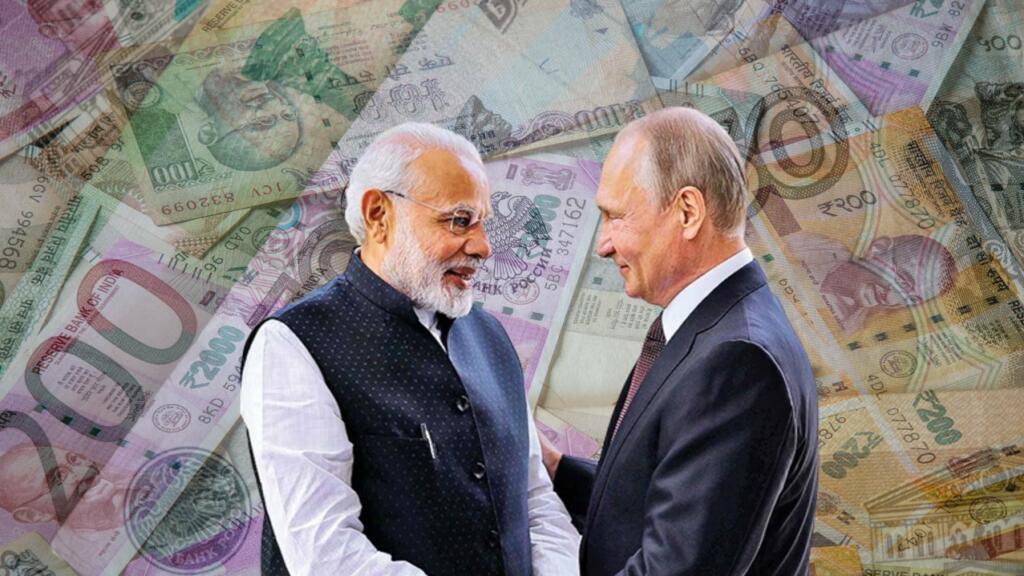- Modi government is considering trading with Russia in Rupee-Rouble currency pairs
- India has done it before with limited success, but this time it is taking the initiative in strategic sectors
- It’s high time that India starts to capitalise on its digital payments infrastructure so that Dollar’s hegemony could be curtailed
The Modi government is all set to circumvent American sanctions on Russia. The government is looking for alternatives to American Dollar for transacting with its time-tested ally.
India and Russia to begin local currency transactions in key sectors
The Union government is considering allowing India-Russia trade in local currencies. Initially, local currency transactions will be taken up in sectors such as agriculture, pharma, and energy sectors. These are the sectors in which the US and its allies have not imposed collective sanctions.
According to Madan Sabnavis, Bank of Baroda’s chief economist, India has taken a neutral stance on Russia and hence there is no official ban on trade and investment transactions between the two countries.
“For transactions to be consummated between two countries, it is imperative to have an exchange rate. With Russia being blocked out of SWIFT, transactions have to be settled in local currencies. The central banks of the two countries have to discuss how one should arrive at the appropriate rupee-ruble rate,” said Sabnavis.
“Certain essential goods like pharma and energy are not banned from/to Russia by some western nations. But with SWIFT being the main medium of transferring funds, these trade actions will be difficult. Besides, the ruble has fallen sharply against the dollar ever since the war started and there were talks of sanctions,” Sabnavis added.
India has tried it before with success
For decades, India has made payments in US dollars for its transactions to almost every country including Russia. But American sanctions on Russia have made it impossible to keep doing it. Any foreign currency except the American dollar will be used as a benchmark and the contract payments will be made directly in the Rupee-Rouble trade.
This is not the first time India is trying to trade in local currency. Before this, the Rupee-Ruble trade was tried in the trade of Tea, albeit in peace times. This mechanism has been tried successfully with Iran also when the Western nations-imposed sanctions on the Islamic Republic.
Problem to solve
One problem in local currency payments is choosing the banks through which payments will be conducted because no bank wants to face the wrath of the United States. On the Indian side, there are banks that have overseas operations which could be hurt due to any future American sanctions.
If tried successfully on a large-scale trade with Russia, India can extend the mechanism to import and export to other sanctioned countries like Iran and Venezuela.
The need for cutting down dependency on American Dollar
It is important for India to have an alternative payment mechanism in place with Russia as the US, the EU and the UK have blocked at least seven Russian banks from accessing the Society for Worldwide Interbank Financial Telecommunication (SWIFT), a global secure interbank system that communicates payment instructions and enables transactions between banks from all the countries around the world.
Given the American use of consumer services like financial transactions as instruments of war, the countries that do not want to be in the American led camp must seek alternatives. For the American government, companies like Apple (suspended financial services in Russia), Google (suspended Russia today channel and many other services in Russia), Amazon, Starlink, Tesla and every other company that offers its services in foreign countries are a weapon.
Western companies at the end of the day will abandon India
These companies seek access to foreign markets in the name of offering innovative goods and services. But when push comes to shove, they work as an arm of the American state. India has already developed the world’s most sophisticated digital payments system (UPI), and the country must offer the world an alternative to Western hegemony in the financial world.
If a UPI like system can be adopted for global transactions, the dominant American position in the financial services industry would end. India already kicked American financial services companies like Visa and American Express, other countries will also be able to do the same if UPI like system succeeds at a global level.
